Because of rising prices, many people don't want to waste resources. Inverter air conditioners are known for their excellent energy savings component, and non-inverter air conditioners, unfortunately, cannot match them.
But is there a way you can convert a non-inverter AC to an inverter AC? Let's find out.
It is impossible to convert a non-inverter AC into an inverter AC, mainly because they have different control circuits, designs, and compressors.
You would need to change the entire makeup of the air conditioner. It is safer, more cost-effective, and time-efficient to simply purchase an inverter AC.
If you are looking for ways to convert a non-inverter AC to a converter AC, you're probably trying to figure out how to save on energy costs with your old air conditioner.
Although you can't fully convert a non-inverter to an inverter, there are ways you can save energy and make your home comfortable. Keep reading below to learn more.
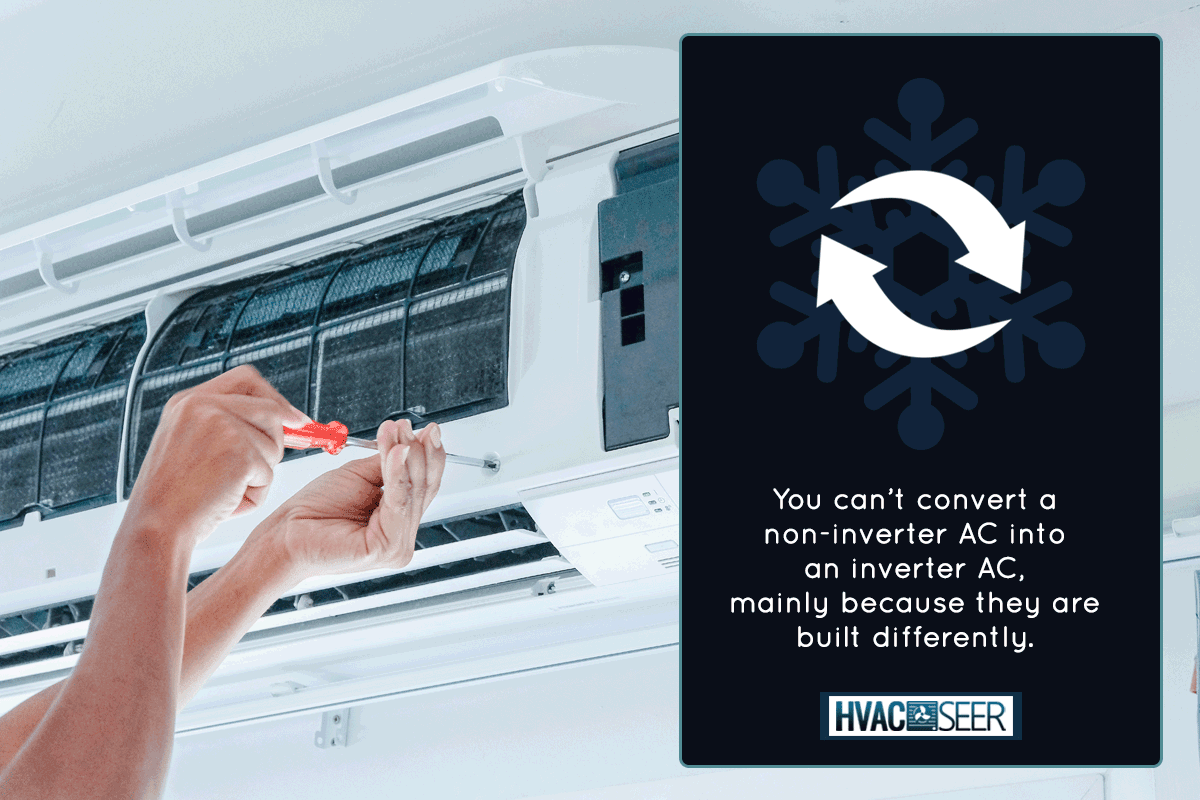
How To Save Energy with Non-Inverter Aircon
Although inverter air conditioners are more cost-effective in the long run, they have a higher initial cost.
If you can't afford to get one yet, there are ways you can decrease your utility bills with your non-inverter AC while keeping your home as comfortable as possible.
These tips are essential, primarily if you work from home most of the time, since you'd want to be comfortable to increase your productivity without racking up your bill too much.
The key is to keep the heat out of the home and to make sure the temperature works for your indoor climate.
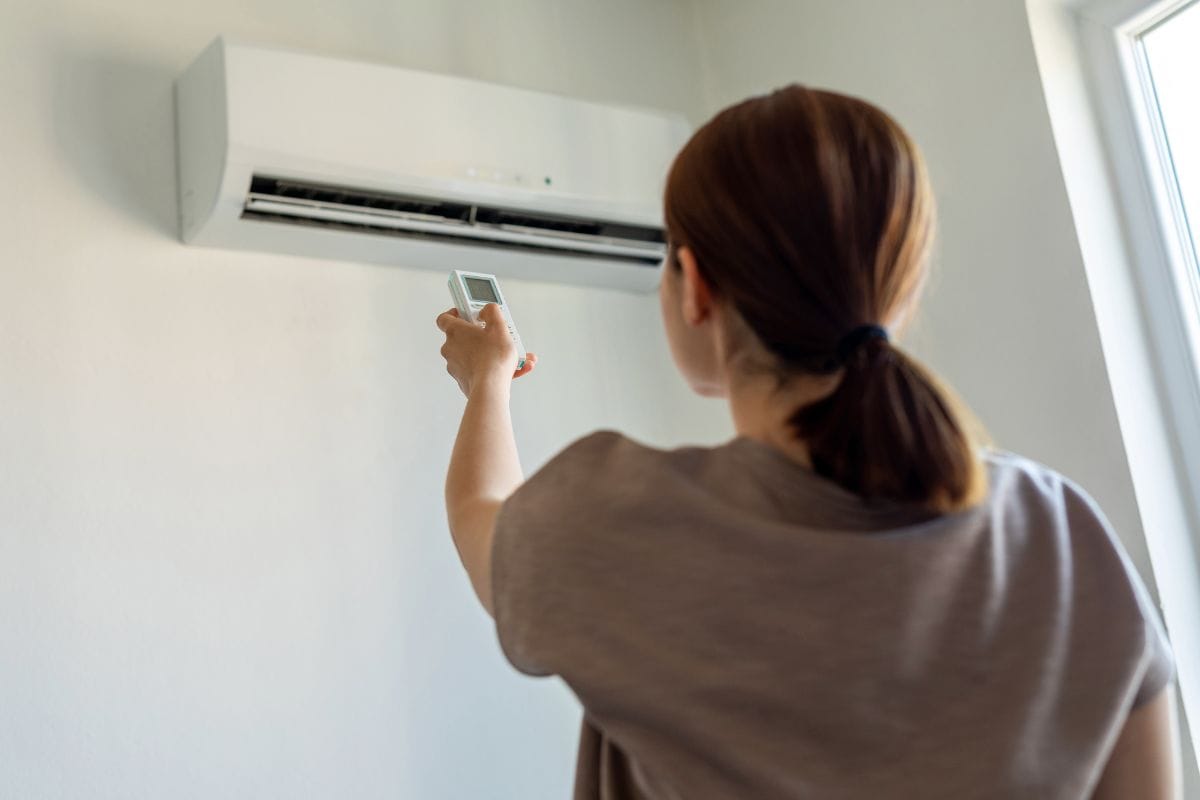
Insulate The Room
Insulating your room will prevent heat from coming inside, especially during the hot summer months. This means that the AC will not work as hard as it will if you're exposed to heat and direct sunlight.
If the air conditioner's compressor doesn't work too hard, less energy would be consumed, resulting in lower utility bills.
It's ideal if you can install fiberglass since it has a high R-value and is non-combustible.
If not fiberglass, you can also use mineral wool to insulate your space. It is moisture-resistant, so it is ideal for areas susceptible to high humidity levels.
Make The Thermostat Work With You
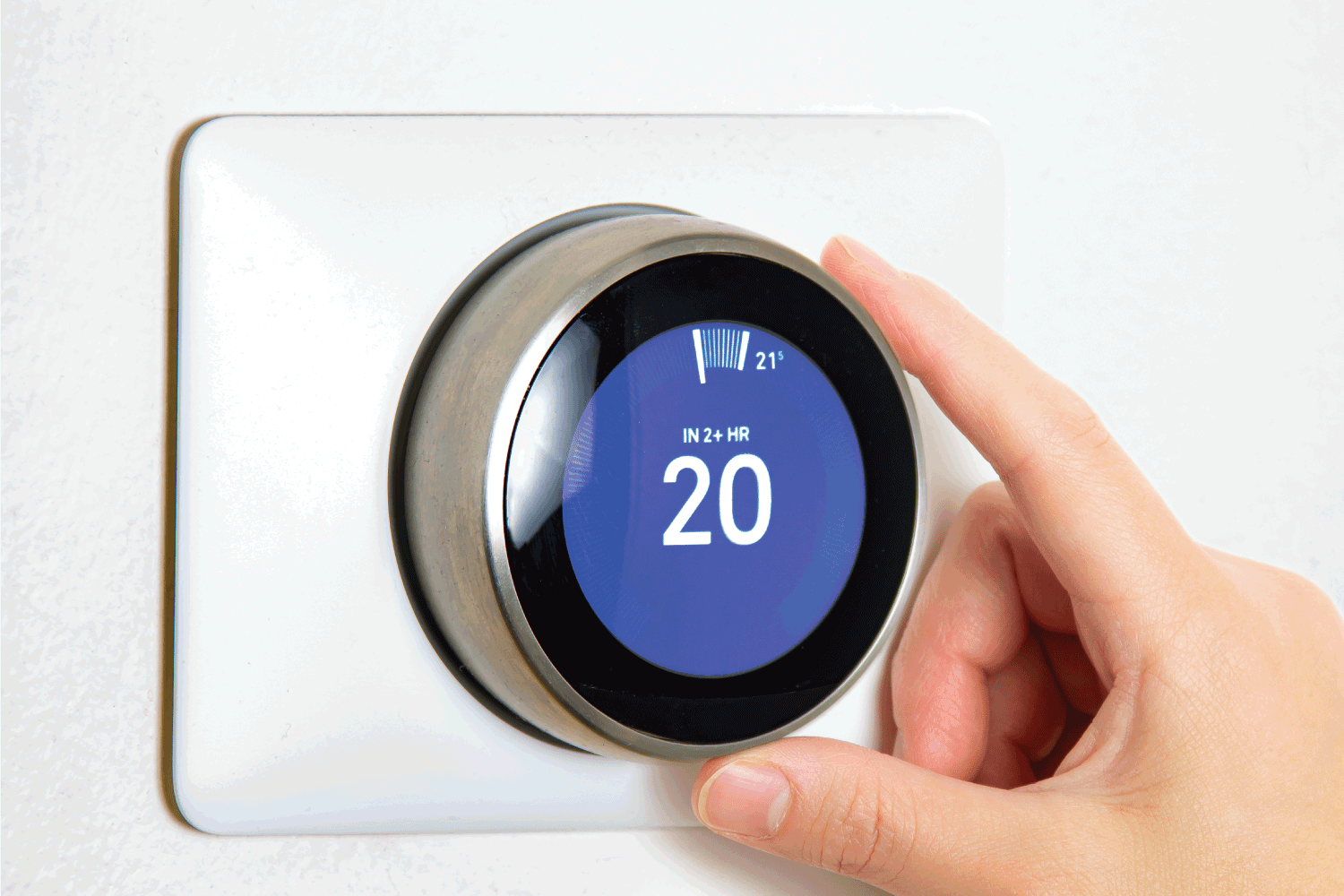
Avoid saturating the room with too many heat-generating electronics. If letting these gadgets run is unavoidable, avoid overheating by setting up a small fan near them.
Too much electronics-related heat in the room will make your thermostat think that the room is hotter than it is and signal your cooling system to increase its power, resulting in higher energy costs.
If possible, keep your thermostat at 75 °F. This would make your AC work less since the thermostat tells it not to lower the temperature. Making your thermostat work with you can significantly reduce your utility bills.
Choose An Energy-Efficient AC
Suppose you cannot afford an inverter air conditioner; at least purchase one with the right energy-efficient star. The ideal star rating for non-inverter ACs is a 3-star energy-efficiency rate.
Although you may not save as much as you could if you purchased an inverter AC, it will still give you a decent amount of savings, unlike if you keep your old window-type AC with an ancient compressor.
Some split-type non-inverter ACs even have dehumidifiers. This is ideal if your space is susceptible to moisture.
Schedule AC Maintenance
One of the reasons the compressor may be working too hard is that too much dirt and debris are blocking the airflow, making the machine think that it needs to produce more cooled air to be dispersed into the room.
This will result in a higher electric bill, so scheduling a unit cleaning is essential.
Clean coils and filters will make your AC run better. They will also prevent more expensive damages and inconveniences.
If you're cleaning it yourself, pay attention to the coils, the drain channel, air filters, and fins.
However, it's best to look for a professional to avoid damaging your AC and to make sure your AC is thoroughly and effectively cleaned.
Keep The Fan Running With Your AC
Running your ceiling fan and air conditioner together can decrease your utility bills.
The fan doesn't consume much energy, and running it will keep your room at an ideal temperature even if you increase your AC's temperature.
When the AC is at 75 °F, and the fan is on at full speed, the unit of electricity consumed in one hour only equals one unit.
This is lower than running the AC at 71 °F without the fan, which results in 1.4 units of electricity consumed in one hour.
Fans also circulate the air put out by the air conditioner, so all the areas in your space are thoroughly cooled, and there are no heat spots.
Check out this ceiling fan on Amazon.
Benefits Of Inverter Air Conditioner
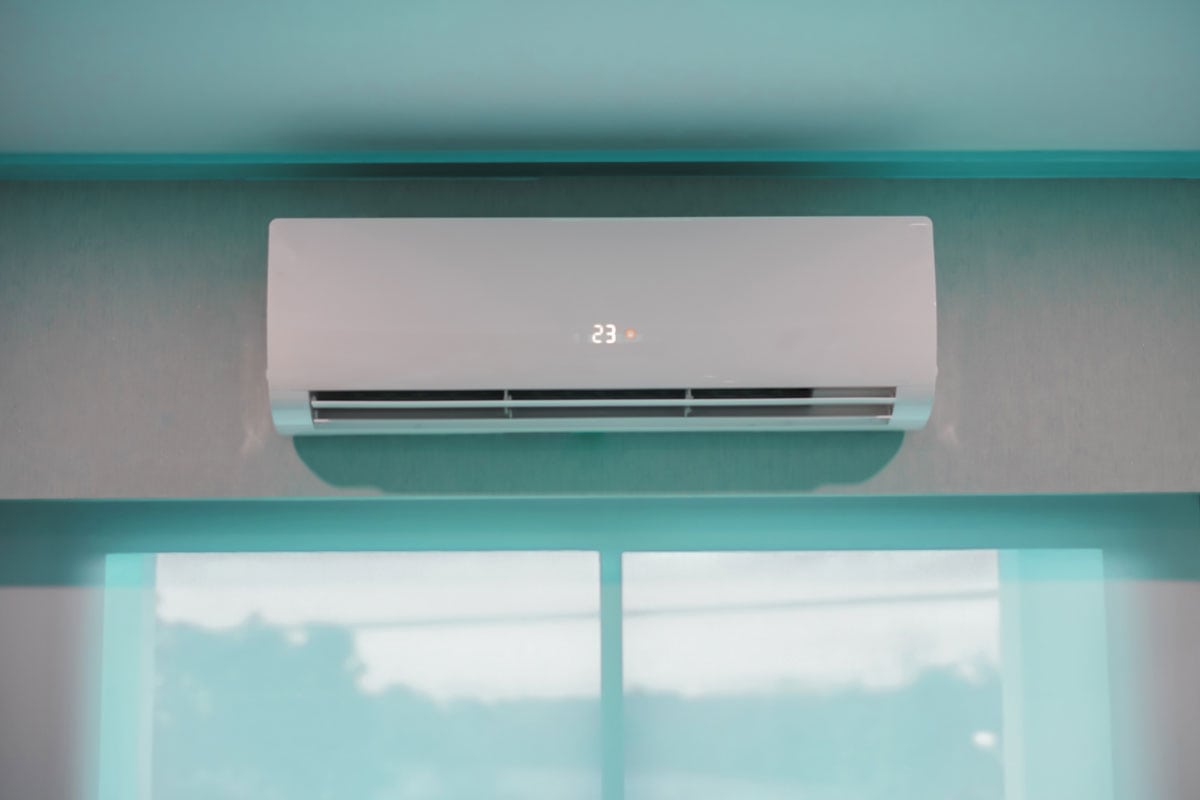
Although you can try to work around a non-inverter AC, the benefits of inverter air conditioners are undeniable.
There is more control over the temperature and motor speed and less voltage fluctuation, resulting in a more energy-efficient mechanism.
Compared to non-inverter air conditioners, inverter ACs will save you more money in the long run. It is generally wiser to save up to invest in this air conditioner instead of settling for a non-inverter window AC.
Here are the benefits of getting an inverter AC:
Lower Power Consumption
Older models of non-inverter ACs have compressors that work at total capacity, resulting in a less-controlled indoor temperature and power consumption.
You won't have this problem with inverter ACs since their compressors have a variable frequency drive that rotates and modulates the compressor depending on your selected temperature.
This means that you have more control over energy consumption, which can result in lower utility bills.
Inverter air conditioners can cut down electricity to 50%, with a minimum expected savings of 30%, which means you have less power consumption.
Maintains Constant Temperature
Inverter air conditioners maintain the temperature at whatever you set it to.
For example, if you set the temperature to 75 °F, it will only run at that particular speed once it reaches the ideal temperature—unlike non-inverter ACs that fluctuate in power and speed.
How do inverter ACs maintain the temperature?
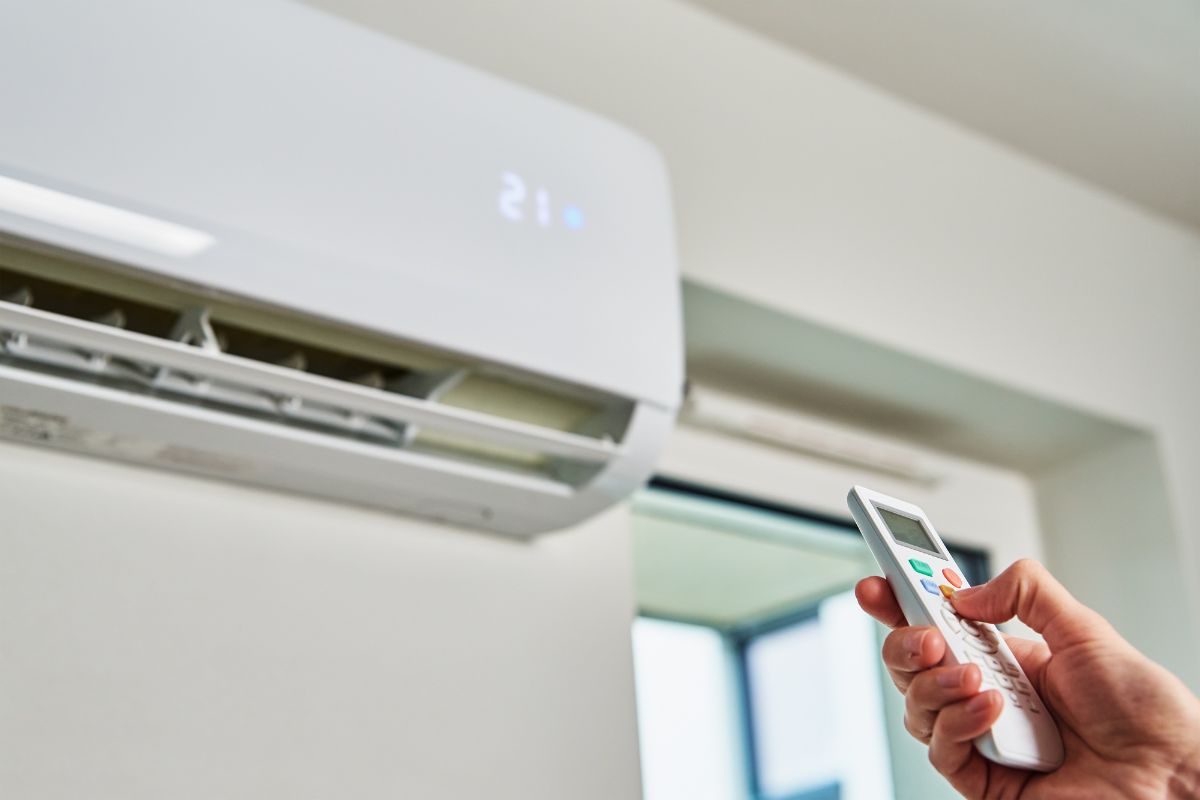
When you power up the inverter AC, the compressor operates quickly. However, it slows down as it reaches the target temperature you've entered, then plateaus. This will manage energy consumption effectively.
If the temperature outside increases, the inverter AC will again work to reach the temperature you set.
You can decrease the power consumption further by operating the fan and the AC so your indoor temperature and energy consumption remain constant.
Environment Friendly
Since the compressor's speed and the amount of cooled air are more regulated, inverter ACs are considered eco-friendly. They consume less power, so there are fewer carbon dioxide emissions.
Most inverters also use refrigerants that won't destroy the ozone, such as R410a and R32.
This is also why you should avoid using old non-inverter types—they have destructive refrigerants that will most likely harm the ozone.
Silent Operation
One convenient quality of inverter ACs is that they operate silently.
They can cool your home without the annoying humming sound common among non-inverter window types. The silent operation will also help you sleep better if you tend to be distracted by the slightest sound.
Faster Cooling
If you live in a warm and sunny area, you'd want your AC to cool your room as necessary.
Inverter ACs lower their temperature when the temperature outside increases, so you have a more consistent indoor climate with a comfortable temperature.
Final Thoughts
You may not be able to convert a non-inverter air conditioner to an inverter one, but there are workarounds you can practice.
At the same time, you save up for a better and more energy-efficient air conditioner.
It's essential to have a high-quality cooling system that won't rack up your bill and destroy the environment. It's necessary to maintain your health and a good quality of life.
Before you go, check out these related posts:

